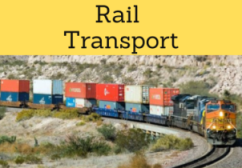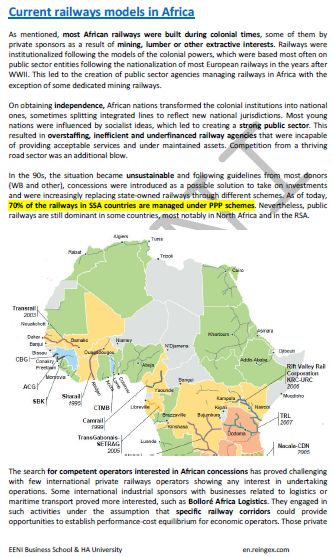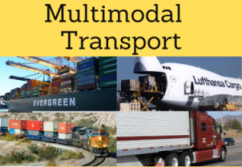
Rail Transport in Africa (railway infrastructure)
African Railways: Botswana, Cameroon, Kenya, Tanzania, Zambia
- Introduction to the Rail Transport in Africa
- Current situation of the African railway infrastructure: challenges and opportunities
- The need for the Rail Transport in Africa
- Overview of the African railways
- Analysis of the Railway Systems in Botswana, Cameroon, Kenya, Madagascar, Morocco, Senegal, Tanzania and Zambia
- Current situation of the railway market in Africa
- Railway Business models in Africa
- Projects for new African railways


The Subject “Rail Transport in Africa” belongs to the following Online Programs taught by EENI Global Business School:
Courses: Transport in Africa, Rail transport, Multimodal transport.

Diplomas: Foreign Trade, International Transport.
Masters: International Transport, Transport in Africa, African Business.
Doctorate: Global Logistics, African Business.

EENI Partnerships with Educational Institutions
Languages:  or
or  Transport ferroviaire en Afrique. Summaries in
Transport ferroviaire en Afrique. Summaries in  Transporte ferroviário na África
Transporte ferroviário na África  Transporte Ferroviario en África.
Transporte Ferroviario en África.
Rail Transport in Africa:

The transport sector can accelerate and intensify the African trade. In particular, the rail transport, as a result of its energy efficiency, the reduction of the greenhouse gas emissions and the reduction of the tone-kilometer transport costs, is expected to play an important role in the long-distance transport in Africa.
However, the current situation of the railway infrastructures is very poor in many African countries. This gap has reduced the potential of the African rail systems to play an active role in the economic development.
In fact, the market share of the Rail Transport in most countries of the African continent is less than 20% of the total volume of the freight transport.
With a few exceptions (mainly in South Africa and North Africa), the African railroads are clearly behind those of most other regions of the world.
- Total railway lines in Africa: 82,000 km
- Operational rail lines in Africa: 84% of the total
- Total Passengers in Africa: 500 million people
- Movement of total freight in Africa: 290 million tons
Two of the main reasons for this situation are the lack of the investment in Infrastructures in Africa and the absence of an institutional framework that favors its development. The Rail transport is essential for the African Economic development and, unless properly developed, Africa may not reach its potential to exploit its abundant natural resources and wealth.
Key factors:
- Largest African metropolitan areas (passenger railways)
- Densely populated areas and African corridors (large volumes of cargo or passengers)
- Corridors from the African ports to the inland markets (Freight trains that move materials in containers or in large quantities from / to ports over long distances)
- Mining basins (transport of minerals and other raw materials to the African export ports)

Advantages: Increase in the African interregional trade.
Analyzed countries: Botswana, Cameroon, Kenya, Madagascar, Morocco, Senegal, Tanzania and Zambia.
Related information:
- Economic Area of the African Civilization
- Maritime Transport
- Asia-Africa Corridor

(c) EENI Global Business School (1995-2024)
We do not use cookies
Top of this page



